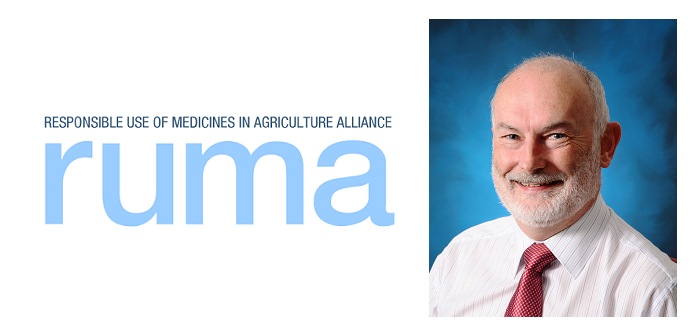The agricultural and food industry alliance (RUMA) has welcomed the updated overview of the EU’s antibiotic resistance challenge, as detailed in a new report from the European Food Safety Authority (EFSA) and the European Centre for Disease Prevention and Control (ECDC).
RUMA secretary general, John FitzGerald, said that the new report shows that the work being done to reduce, refine and replace antibiotic use remains a priority for all concerned, and is very necessary across both human and veterinary medicine.
He also drew some encouragement, however, from the fact that resistance levels in the UK are “generally lower” than those found in some other areas, adding that this hopefully reflected, at least in part, the responsible use guidelines for farm animals which have been put in place through RUMA’s efforts over the past 20 years.
“Despite this, the need for further concerted action is clear,” he said, going on to highlight the fact that while cutting back on antibiotic use should reduce the risk of resistance occurring, there wasn’t always a direct relationship.
“The new report found very low levels of resistance to carbapenems in pigs and pigmeat, yet carbapenems are neither authorised nor used in food-producing animals,” he stressed. “This doesn’t mean we should lose focus on reductions, however.
“For example, very low levels of bacterial resistance (in 0.6% of isolates tested from fattening pigs) were reported for colistin, a drug of last resort, in the UK. While 2015 UK sales of colistin for food-producing animals were around a tenth of the EU recommended maximum, it is hoped that voluntary restrictions imposed by many sectors at the end of 2015, after resistance to colistin was found in China, will have resulted in further reductions for 2016.”
RUMA and the UK livestock industry were in complete agreement with the report authors, he added, with the prudent use of antibiotics in human and veterinary medicine continuing to be extremely important in addressing the challenge posed by antimicrobial resistance.
“We all have a responsibility to ensure that antibiotics keep working,” concluded Mr FitzGerald (pictured above).




